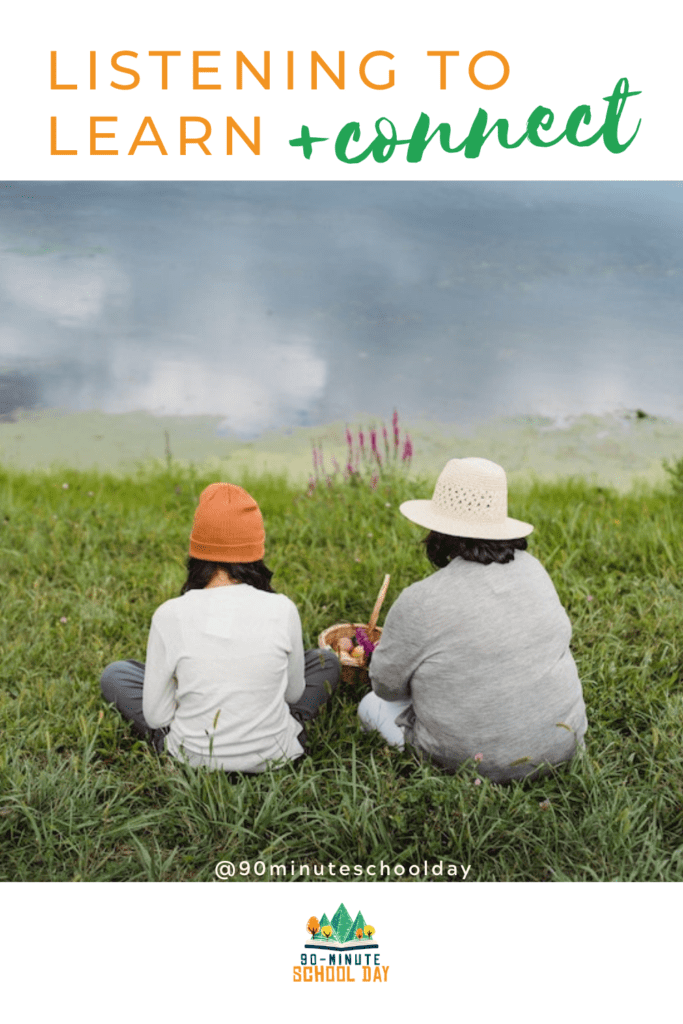Do you listen to your children? But, really…do you?
A child’s education and personal development are the goals of any parent. We want the very best for our children, from the best meals to the most advantageous opportunities. These aspirations are good. However, we rarely understand that development starts with how parents respond to their child’s voice. Creating deeper bonds with our kids, begins with listening.
You Become the Student
Raising self-directed, life-long learners requires that parents first become students of their child. We must study them through observation and listening. This study attunes us to their voice. It is through understanding who they are and who they are becoming that we can facilitate a learning environment that meets them where they are and where they want to go.
“When dealing with children there is greater need for observing than of probing.” – Maria Montessori.
Maria Montessori advocated for parents to pause, slow down and observe their children. It is through observation, that parents notice what their child is naturally interested in learning. After observation, the parent can strategize about how to make it available to them in an age-appropriate way.
Passive v. Active Listening
Listening falls into two categories, passive and active. Most parents will find themselves in the category of passive listening…where the parent hears but does not respond or pay attention. Alternately, active listening is responsive, using good eye contact and body language.
In the busyness of life, active listening is utilized to respond more than to understand. Listening to understand uses good eye contact to pick up the non-verbal communication the child offers. Listening and tuning into our kids to what they are saying behind the words and behavior is where we begin to understand their thoughts and opinions.
What is Your Intent?
Listening begins with intent. Is the listener actively engaged to understand or to reply? Most importantly, where have you been on this spectrum? Are you positioning yourself to actively listen to your child’s verbal and non-verbal communication? Looking to improve?
Flip the Script
The focus of parents is often to get a child to listen to them. Flip the script. Begin to listen and understand the child. It is the child’s job to discover who they are, and the parent’s job is to be their guide. A good guide learns by observing the subject of study. It is there that the magic happens, the collaboration for adventure begins. Respecting the child’s efforts to solve their own problems is a gift toward independence, self-confidence and independent learning. Parents as guides, allow freedom with limits for the child to chart her course and develop her skillset to equip the person she is to become.
“It is necessary for the teacher to guide the child without letting him feel her presence too much, so that she may always be ready to supply the desired help, but may never be the obstacle between the child and the experience.” -Maria Montessori.
A Place to Start
Here are some suggestions for how to get started. Choose one and build from there.
- Listen actively to one entire conversation.
- Observe the child’s hands and face throughout the day.
- Observe the activities your child is choosing in their free time.
- Make observation and listening a repeated pattern in your day. Practice.
- Listen to understand.
Want to create similar intentions in your homeschool around connection with your kids to increase learning? Click here.





